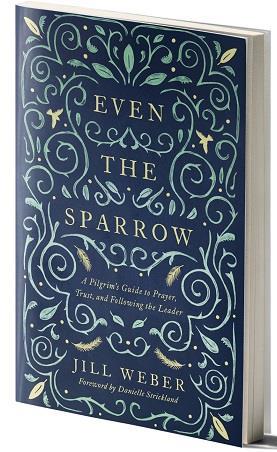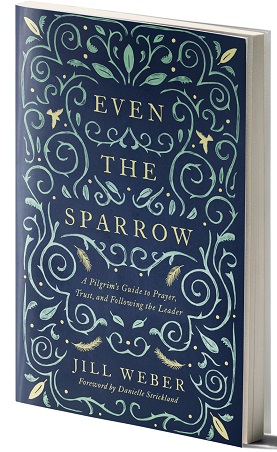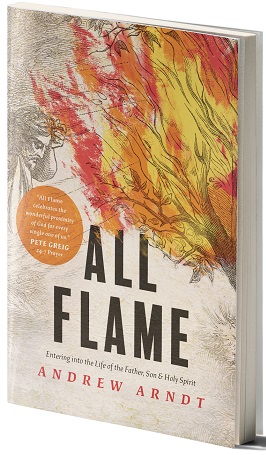
I often highlight fiction during August, but with life so different I thought I’d go for some applied theology. Maybe we’re emerging from a stunned stupor over the past few months and now we can engage more deeply. Here are two titles that can gently rouse us awake.
I passed over Even the Sparrow for several months, not really grabbed by the title and unfamiliar with the author. But, when I started reading, I was gripped. Perhaps because it’s a mixture of memoir with spiritual practices it’s harder to classify. 
Jill Weber started up a house of prayer in Canada before moving over to the UK to work with the 24-7 prayer movement. She welcomes us to join her in her study, with a cup of something warm in our hands, as she recounts her inspiring and sometimes crazy adventures with God. She’s an engaging guide; her quirky and endearing voice shining through.
She divides the book into 40 short-ish chapters, which you can read in a season of dedicating yourself to prayer. She covers pilgrimage, prophecy, dreams, hearing God, stepping out in faith and reading the Bible prayerfully, among others.
I love how she recounts how she’s followed God’s leading. Once, literally. She decided to go where the still, small voice took her, step by step: “Get on the subway.
Get off at Bloor Station. Turn left…” She ended up at a church where she ran into a friend and they had a delightful conversation, talking about her experiment in listening to God.
The second book is All Flame, which I adored, and yet I hesitated to share it as it’s by an American pastor that you and I have probably never heard of. But I loved this book and would love you to read it too.
 Andrew dives deeply into a conversation about the Trinity, and how God the Father, Son and Holy Spirit relate not only to each other, but to us. A quotation reveals the heart of the book: “I want to grow in what the ancient men and women of faith often called ‘union with God’ – that state of being where God is so present to and alive in us that it is difficult to know where God ends and we begin.”
Andrew dives deeply into a conversation about the Trinity, and how God the Father, Son and Holy Spirit relate not only to each other, but to us. A quotation reveals the heart of the book: “I want to grow in what the ancient men and women of faith often called ‘union with God’ – that state of being where God is so present to and alive in us that it is difficult to know where God ends and we begin.”
In the last third he focuses on how three people – Mother Teresa, Dietrich Bonhoeffer and Rich Mullins – lived out their life with the Trinity. Maybe because I enjoyed the theological musings so much, I was less taken with this section of the book. Our ideas of what union with God looks like can vary from person to person, and thus seeing how someone understands that reality may not resonate with what our picture is. But, of course, others might love this section of the book. Are you game to read some theology?





























